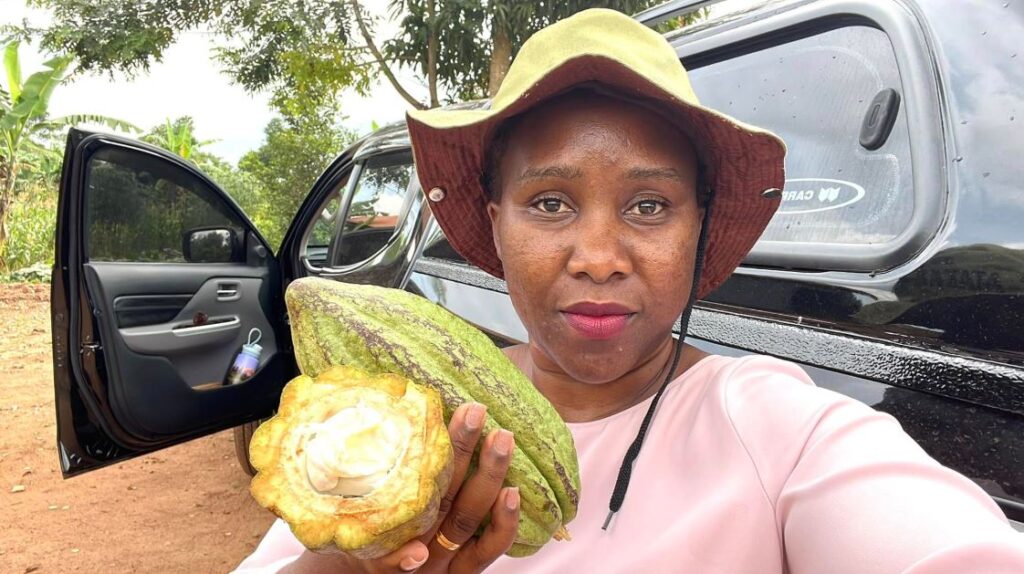The Presidential Advisory Committee on Exports and Industrial Development (PACEID) has partnered with Arise Kollections to promote cocoa cultivation for export, aiming to build on recent record earnings.
According to the latest Bank of Uganda report, Uganda’s cocoa bean exports reached a record high in February 2025, earning $68.7 million (Shs254 billion). This represents a 42 percent increase in cumulative revenue compared to the previous period. This performance marks a milestone for the industry, following strong exports of $44.2 million in December 2024 and $67.8 million in January 2025.

Speaking at the groundbreaking ceremony for the Arise Kollections Leadership and Skilling Centre in Kigogola Village, Kasawo Sub-county, PACEID Chairman Odrek Rwabwogo said the partnership will expand market opportunities in countries such as the United Kingdom and the United States.

“We can do aggregation and finance that aggregation as primary production before we can go to secondary production, which is processing, which is what the country requires,” Rwabwogo said.
He noted that in Uganda, women-headed businesses constitute about 90 percent of the job market, with 64 percent of those businesses owned and run by men. “I am happy to see that you are reducing those numbers progressively, and you are doing it in Nakifuma,” he added.
Professor Gudula Naiga Basaza, a board member of Arise Kollections, said the launch of the 30-acre centre is aimed at promoting agro-industrialisation and facilitating export-ready production.
“We should stop giving other people the power to control our destiny. A number of times we rely on aid and donations to achieve our goals, but the message here is let us focus on trade,” she said.

Professor Basaza added that Uganda has about 42.6 percent of youth who are unemployed, with Nakifuma Sub-county recording about 47 percent youth unemployment.
The founder of Arise Kollections and Cocoa Farms, Agnes Kitumba, said the new hub is part of a dream that began 14 years ago in Namugongo, where she ran a smaller half-acre facility.
“My dream was born to go out there and take the services to our local communities. After 14 years of running a business in town, where we always had to recruit girls from less advantaged societies, we realised the cost of living in town is high,” she said.
Kitumba added: “Our dream is that we can take the opportunity to the rural community and build the community so that we reduce rural-urban migration, where youth think they can only make it when they move to urban areas.”
She also appealed to Ugandan entrepreneurs to embrace partnerships as a key to linking manufacturers and producers with buyers.
Head of Program Development, Quality, and Management at Uganda Agribusiness Alliance (UAA), Mariam Akiror, said their role is to ensure agribusiness entrepreneurs comply with national and international standards to remain competitive globally.
“We were able to bring them together to meet the United Arab Emirates investors, who are interested in different agriculture value chains such as cocoa and ginger,” she said.
“We are interested in agriculture careers, profiling, and promotion, ensuring that our young Ugandans fall in love with agriculture and begin to look at it as both a career and a hobby, because agriculture is the oxygen of our country.” Akiror added:
Currently, major cocoa-growing districts in Uganda include Bundibugyo, Buikwe, Mukono, Jinja, and Masindi. Other significant producers are Hoima, Mubende, Mayuge, Mpigi, Luweero, Masaka, and Kasese.


